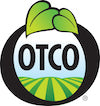Organic Farming Can Feed the World

Organic farming has many benefits. From the health of the soil and the farmer, to producing foods free from pesticides and herbicides. And now, a new study finds that organic farming may be more productive than previously thought.
According to the Independent, the study, published in the journal Royal Society B found average organic yields to be only 19.2 percent lower than conventional and that number could shrink to eight percent with more crop rotation. And in some crops like beans, peas and lentils no notable yield differences occurred between organic and conventional.
The researchers looked at 115 studies that compared organic and conventional agriculture methods.
“In terms of comparing productivity among the two techniques, this paper sets the record straight on the comparison between organic and conventional agriculture,” said Claire Kremen, professor of environmental science, policy and management at Berkeley told the Independent.
“With global food needs predicted to greatly increase in the next 50 years, it’s critical to look more closely at organic farming because, aside from the environmental impacts of industrial agriculture, the ability of synthetic fertilizers to increase crop yields has been declining,” said Prof Kremen.
Conventional farming, which is reliant on pesticides and herbicides, has been linked to a number of issues including pollinator decline. Honeybees and other pollinators are responsible for approximately one-third of all the food we eat and without their free labor food prices would rise significantly.
The researchers noted that multi-cropping, which involves growing several crops in the same field, as opposed to mono-cropping practices, is critical to increasing organic food production.
“It’s important to remember that our current agricultural system produces far more food than is needed to provide for everyone on the planet,” said Prof Kremen.
“Eradicating world hunger requires increasing the access to food, not simply the production. Also, increasing the proportion of agriculture that uses sustainable, organic methods of farming is not a choice, it’s a necessity. We simply can’t continue to produce food far into the future without taking care of our soils, water and biodiversity,” she added.
Leave a comment
Comments will be approved before showing up.


